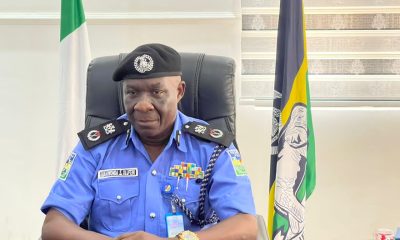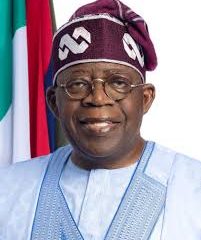Politics
INEC, Police, stakeholders convene to discuss election security in Asaba
Ahead of the next year’s general election, the Independence National Electoral Commission, INEC, Delta state Police Command and stakeholders have convened in Asaba in the election security summit on Friday.
The summit discussed extensively agency collaboration for conducting globally acceptable free and fair general elections in the country come 2023.
The summit outlined the roles of security operatives in the forthcoming general election in the state, adding that security personnel and critical stakeholders should remain apolitical.
A paper presented at the summit read: “While the Independent National Electoral Commission {INEC} is the body statutorily responsible for the conduct of the election, the Nigeria Police Force, by the provision of Section 91(1) of the Electoral Act, 2022 is the lead agency vested with the duty of providing “……. adequate security for the proper and peaceful conduct of political rallies and processions…..”. For successful management of 2023, the Nigeria Police Force, pride being the lead realizes that synergy between security agencies through inter-agency collaboration cannot be overemphasized as being the very important purpose of enforcement of electoral laws, maintaining peace and security before, and during, and after the process, the Force will adopt several strategies which involve consultations and engagements with relevant stakeholders, public enlightenment through the Police Public Relations Officer {PPRO} as well as arrests and prosecutions whenever it becomes necessary.”
Attached is the paper presented at the summit.
2023 ELECTION SECURITY.
THE IMPERATIVE OF INTER-AGENCY COLLABORATION
The election has come to be known across the globe as the process by which a group of people or people within a particular geographical space, vote to choose persons to represent them in government or in any other group to which they subscribe. In every democracy, sovereignty belongs to the people and the legitimacy of any government in a democracy is conferred by the people through the ballot box. Electoral integrity is very vital for election credibility which is sine qua non to an acceptable electoral process.
2. An election can only be said to be fair and credible if it is peaceful, non–violent, accessible, without intimidation and threat and above all, the outcome reflects the wishes of the electorate expressed in a conducive atmosphere that allows for free voting by all qualified citizens without let or hindrance. There is, therefore a direct correlation between security and the credibility of elections.
3. During elections, the state authorities strive to ensure that all involved, notably the voters, electoral officials, observers, candidates, and all other stakeholders can conduct their respective part without fear of harm or molestation while also trying to ensure that all sensitive electoral materials are kept secure as election security is critical to the advancement of democratic culture. The specific security requirements for elections vary and are determined by the prevailing factors within the electoral environment. For instance, when elections are to be conducted in places where there is an ongoing conflict or there is a reasonable apprehension of violence, securing such elections will require the situation to be taken into cognizance. Potential for violence in any election could come from majorly ethno-political, economic, and socio-religious dimensions.
4. One of the major goals of election security management is to checkmate electoral violence which essentially is the employment of force to coerce the electoral officials, contestants, voters, and other actors involved in the process in other to affect the outcome of the election. Effective election security management plans should thus involve identifying the early warning signs, mobilizing and engaging the citizenry, voters’ education as well as ceaseless and robust public enlightenment.
5. The much-awaited 2023 General elections are fast approaching with about one hundred and forty {140] days to their commencement. The electioneering process has commenced with the seal taken off the lid of campaigns and political rallies with effect from Wednesday, 28th September 2022. With the elections expected to hold in all the five thousand, eight hundred and sixty – three (5,863) Polling Units of the two hundred and seventy (270) Wards in the twenty–five (25) Local Government Areas of the State, it is not unexpected that security issues will take the front burner among issues requiring serious attention for a hitch-free electoral process. For a state like Delta, election security managers must consider such crimes as cultism, kidnapping, communal clashes, civic agitations, and the infiltration of elements sympathetic to the course of the outlawed Independent People of Biafra {IPOB}.
6. While the Independent National Electoral Commission {INEC} is the body statutorily responsible for the conduct of the election, the Nigeria Police Force, by the provision of Section 91(1) of the Electoral Act, 2022 is the lead agency vested with the duty of providing “……. adequate security for the proper and peaceful conduct of political rallies and processions…..”. For successful management of 2023, the Nigeria Police Force, pride being the lead realizes that synergy between security agencies through inter-agency collaboration cannot be overemphasized as being the very important purpose of enforcement of electoral laws, maintaining peace and security before, and during, and after the process, the Force will adopt several strategies which involve consultations and engagements with relevant stakeholders, public enlightenment through the Police Public Relations Officer {PPRO} as well as arrests and prosecutions whenever it becomes necessary.
Periodic Elections are the cornerstone of every democracy. They constitute a vital link between leaders and citizens. The legitimacy of any government in a democracy is conferred by the people through the ballot box.
An election can only be said to be fair and credible if the outcome reflects the wishes of the electorate expressed in a conducive atmosphere that allows for free voting by all qualified citizens without let or hindrance:
} Peaceful
} Non-Violent
} Accessible
} Free of intimidation and threat
There is, therefore a direct correlation between security and the credibility of elections.
Election Security refers to the protection of elections; voting infrastructure & persons as well as processes from attack, threat, or intimidation and ensuring compliance and adherence to laid down laws, rules, and procedures.
Security is indispensable to the conduct of free, fair, and credible elections, it covers a wide range of activities and scenarios:
v Campaigns and Rallies
v Personnel: Poll workers, Observers, Media, Voters
v Public & Private Property (Buildings, Machinery, equipment, etc.)
v Networks, data, processes, and intangibles
4. Insecurity – The risk or threat of violence has characterized elections in Nigeria. There have been several well-documented reports of killings, maiming, kidnappings, arsons, and other violent acts leading up to the elections, on polling day, and in the post-election period. Recent examples include the 2011 post-election violence in Bauchi and Kaduna and Polling Day violence in Kogi, Bayelsa, and the Rivers States which recorded some deaths.
Some of the effects of Insecurity on elections include:
v Inconclusive elections
v Low Voters turnout
v Discourage participation of vulnerable groups
v Is a drain on resources
v Impugns integrity of the process
v Questions legitimacy of government
v Leads to mistrust of the system
v Breeds instability and insecurity.
Registration Offences
} Buying and selling voter’s card S(22)
} Unlawful possession of voter’s card S23 (1)
} Unlawful signing of the registration form, and procurement of a fictitious person as the registrant.
} Procuring registration of a person who ought not to be registered or a fictitious person.
} 23 (2) By duress or threat causing anyone to refrain from registering, hindering anyone from registering.
} 26 (2) Any INEC or Security official who does not take the oath of loyalty and neutrality
SECTION 114 -129
} S114 & 115: Registration & nomination offenses Destroy, mutilates, defaces or removes any estimate, false publication, impeding a registration officer, forgery, undertaking registration at an authorized place, candidate signing nomination paper or result form in more than 1 constituency Unlawful possession or printing ballot papers or result sheet or manufacturing of any ballot box or election-related devices.
} S116- inciting or disorderly behavior
} S117- improper use or sale of voters’ card
} S118- Use of government vehicles to convey people to register
} S119- Impersonation of registration and election
} S120- Any officer appointed for this Act who without lawful excuse commits any act or omits to act in breach of his or her official duty commits an offense liable on conviction to N500,000 fine or imprisonment for 12 months or both polling officials who report late or fail to report for duty on election day faces the same punishment.














